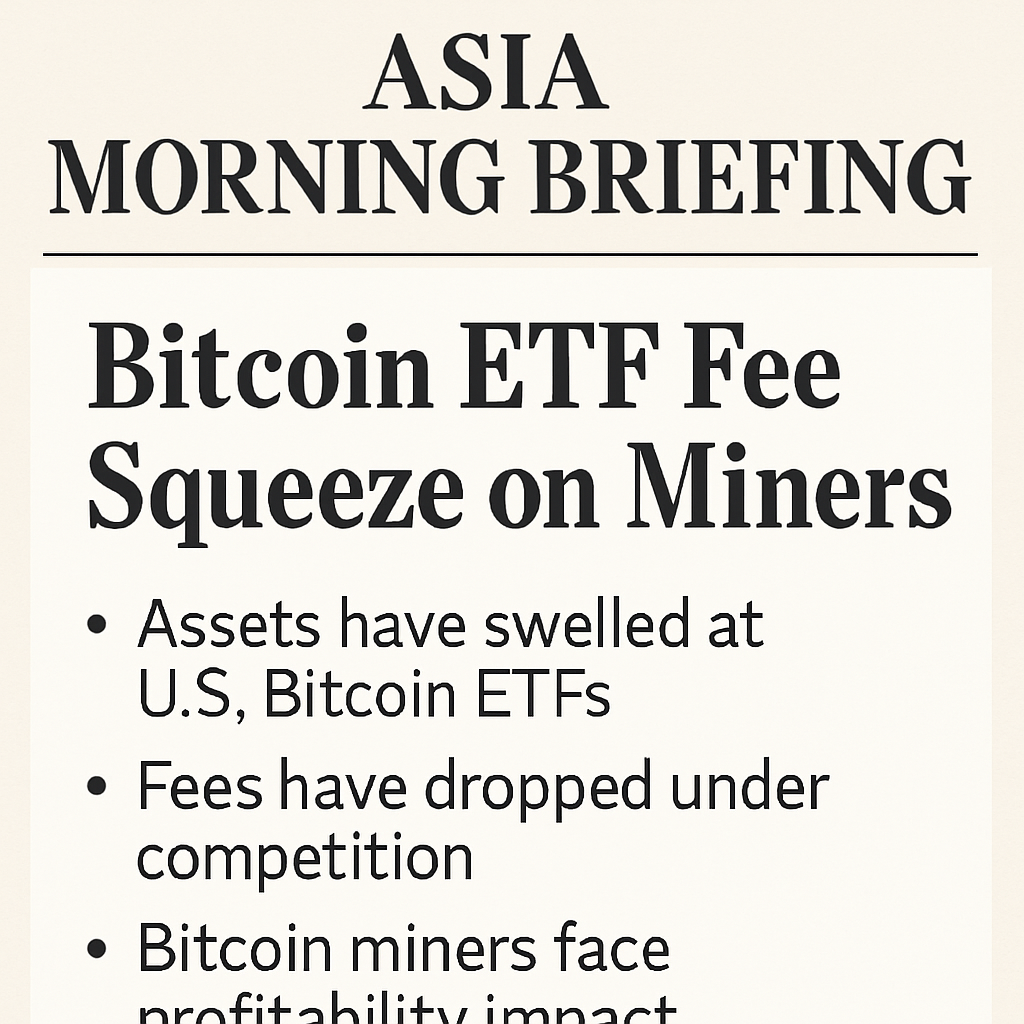Asia Morning Briefing reported a significant shift in on-chain activity dynamics, as large institutional flows into Bitcoin exchange-traded funds and custody platforms have coincided with a marked decline in transaction fee revenue for miners. According to CoinDesk data, daily Bitcoin transaction fees dropped by over 60% in the past week, reflecting a migration of small-value retail transactions to alternative networks like Solana, where lower gas costs and faster settlement attract consumer engagement. While total network hash rate remains near all-time highs, revenue per terahash has fallen, prompting miners to diversify into high-performance computing and AI hosting services to compensate for lower block rewards and fee income.
The briefing emphasized that the evolving fee structure could reshape mining economics, with operators in regions offering inexpensive power, such as the United States and Kazakhstan, maintaining profitability despite fee compression. Meanwhile, Solana’s retail traffic surge has driven daily transaction counts above 150 million, as decentralized applications on its platform benefit from subsidized fees and integrated social features. Observers warned that sustained fee declines on the Bitcoin network could pressure smaller mining farms, potentially leading to increased network centralization or consolidation among mining entities with large-capital reserves.
Key takeaways from the briefing included the potential for miners to explore data center partnerships for AI and machine learning workloads, leveraging existing infrastructure to host supercomputing clusters. Additionally, central banks and financial institutions in Asia are evaluating tokenized securities platforms, which could introduce new enterprise-grade use cases for on-chain asset transfer and settlement. Market participants will be monitoring fee market developments and institutional ETF flows to assess their combined impact on network security, miner strategies and the broader crypto ecosystem’s resilience.

Comments (0)